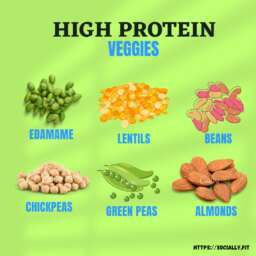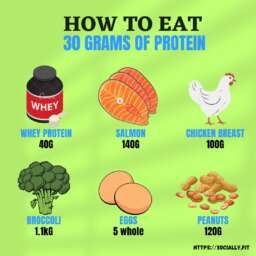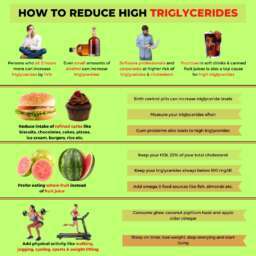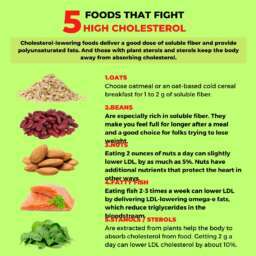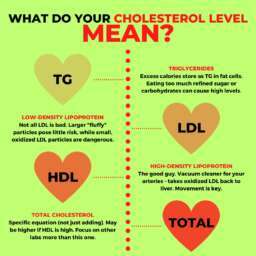Are Dill Pickles Good for Weight Loss? Discover the Truth! Curious if dill pickles can aid in weight loss? Explore the nutritional benefits, potential downsides, and expert opinions on including dill pickles in a weight loss diet. Learn how to enjoy this low-calorie snack healthily.
Introduction
Are dill pickles good for weight loss? If you’ve ever pondered this while munching on a crunchy pickle, you’re not alone. Dill pickles, with their tangy flavor and satisfying crunch, have long been a favorite for many. But beyond their taste, do they have a place in a weight loss diet? Let’s dive into the world of dill pickles to uncover their nutritional benefits, potential downsides, and how they can fit into a healthy weight loss plan.
The Nutritional Profile of Dill Pickles

Low-Calorie Snack
Dill pickles are an excellent choice for a low-calorie snack. A medium-sized dill pickle contains just about 4 calories, making it a guilt-free option for satisfying cravings without impacting your calorie intake.
Minimal Fat and Protein
Dill pickles contain virtually no fat and negligible protein. This makes them a light snack, but if you’re looking to boost protein intake, pair them with other protein-rich foods.
Sodium Awareness
Be mindful of the sodium content in dill pickles. A medium pickle can have around 500 milligrams of sodium, which is about 22% of the daily recommended intake. Excessive sodium can lead to water retention, so consume in moderation, especially if you’re watching your salt intake.
Vitamins and Minerals
Despite their low calorie count, dill pickles offer some vitamins and minerals. They are a good source of vitamin K, which is important for bone health and blood clotting. They also contain small amounts of vitamin A, vitamin C, calcium, and potassium.
Probiotic Potential
Naturally fermented dill pickles can be a source of probiotics, which are beneficial for gut health. Look for pickles labeled as “fermented” or “naturally cured” to maximize probiotic benefits.
Watch for Added Sugars
While dill pickles themselves do not contain added sugars, be cautious with store-bought versions. Some brands may include sugar in their brine. Opt for products with minimal added sugars to keep your snack aligned with weight loss goals.
Homemade vs. Store-Bought
Homemade dill pickles allow you to control the ingredients, including the amount of sodium and added preservatives. If you’re concerned about additives, making pickles at home can be a healthier option.
Consider Overall Diet
Incorporate dill pickles as part of a balanced diet. While they are a low-calorie snack, it’s important to pair them with other nutrient-dense foods to ensure you’re meeting all your dietary needs.
Flavor and Satiety
The tangy and crunchy nature of dill pickles can help curb appetite and add variety to your snacks. Enjoy them as a flavorful addition to meals or as a standalone treat.
Moderation is Key
Even with their low calorie count, the high sodium content in dill pickles means that moderation is crucial. Balance your pickle consumption with other low-sodium foods to maintain a healthy diet.
Health Benefits of Dill Pickles
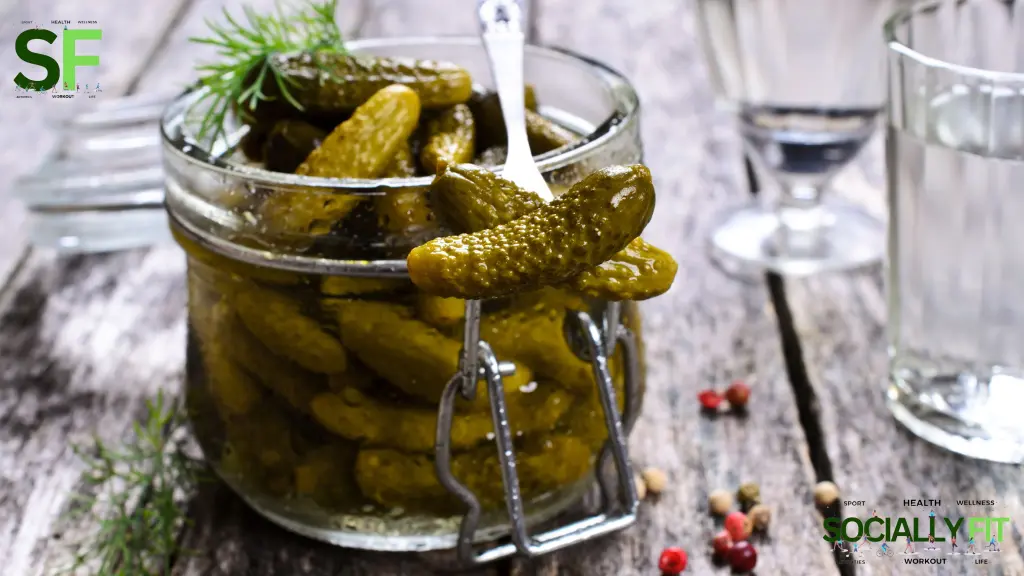
- Boosts Gut Health with Probiotics
Naturally fermented dill pickles are a great source of probiotics, which are beneficial bacteria that support a healthy gut microbiome. Probiotics aid in digestion, enhance nutrient absorption, and can improve overall digestive health. - Provides Antioxidants
Dill pickles contain antioxidants, particularly from the dill used in the pickling process. Antioxidants help neutralize free radicals, reducing oxidative stress and inflammation in the body, which can contribute to overall health and well-being. - Supports Bone Health
Dill pickles are a good source of vitamin K, which plays a crucial role in maintaining bone health. Vitamin K helps regulate calcium in the body and supports bone mineralization, reducing the risk of fractures and osteoporosis. - Aids in Hydration
Due to their high sodium content, dill pickles can help maintain electrolyte balance and hydration, especially after intense physical activity. However, balance pickle consumption with adequate water intake to avoid excessive sodium. - Low-Calorie Snack for Weight Management
With only about 4 calories per medium pickle, dill pickles make a satisfying, low-calorie snack. They can help curb cravings and reduce the likelihood of overeating, supporting weight management and dietary goals. - Potential Anti-Inflammatory Benefits
The antioxidants and compounds found in dill, such as flavonoids, have anti-inflammatory properties. Consuming dill pickles can help reduce inflammation in the body, potentially lowering the risk of chronic diseases linked to inflammation. - Natural Appetite Control
The tangy flavor of dill pickles can help control appetite by adding a satisfying taste without additional calories. This can be particularly useful for managing hunger and preventing overeating between meals. - Supports Metabolic Health
The vinegar used in the pickling process may help improve insulin sensitivity and regulate blood sugar levels. This can be beneficial for metabolic health and weight management, particularly for those with insulin resistance or diabetes. - Boosts Immune Function
The vitamin C and antioxidants in dill pickles can contribute to a stronger immune system. Vitamin C is known for its role in supporting immune function and protecting against common illnesses. - Versatile and Flavorful Addition
Adding dill pickles to your diet can enhance the flavor of meals without adding significant calories or fat. They are a versatile ingredient that can be used in a variety of dishes, from salads to sandwiches, making healthy eating more enjoyable.
| Comparison Factor | Dill Pickles | Greek Yogurt (Plain, Non-Fat) | Almonds | Popcorn (Air-Popped) | Apple Slices |
|---|---|---|---|---|---|
| Calorie Content | Very low, about 4 calories per medium pickle | Low to moderate, about 100 calories per 6 oz serving | High, about 160 calories per ounce | Very low, about 30 calories per cup | Low, about 50 calories per medium apple |
| Sodium Content | High, about 500 mg per medium pickle | Very low, about 50 mg per serving | Low, about 0-1 mg per serving | Low, about 0 mg per cup | Very low, about 0 mg per serving |
| Nutrient Density | Contains some vitamins and minerals, especially vitamin K | High in protein, calcium, and probiotics | Rich in healthy fats, protein, vitamins, and minerals | High in fiber and antioxidants, but low in protein | Rich in fiber, vitamins (especially vitamin C), and antioxidants |
| Satiation Level | Can help curb appetite due to its tangy flavor and crunch | High in protein, which promotes satiety | High in protein and healthy fats, which can help control hunger | Moderate, high fiber content can promote feelings of fullness | Moderate, fiber helps in satiety but may not be as filling as protein-rich foods |
| Effect on Weight Loss | Low calorie but high sodium can lead to water retention if overconsumed | Promotes satiety and supports muscle maintenance due to high protein content | High calorie but nutrient-dense; portion control is essential | Excellent low-calorie, high-fiber snack, helps manage hunger | Low in calories and good for satisfying sweet cravings |
How to Incorporate Dill Pickles into Your Diet
- Snack on Them Plain
Enjoy dill pickles straight from the jar as a crunchy, low-calorie snack. They’re a great way to satisfy cravings between meals without adding many calories to your diet. - Add to Sandwiches and Wraps
Enhance the flavor and texture of sandwiches and wraps by adding sliced dill pickles. They provide a tangy crunch that complements meats, cheeses, and vegetables. - Use as a Salad Ingredient
Chop dill pickles and mix them into salads for extra flavor and crunch. They can be a great addition to green salads, potato salads, or even as a topping for coleslaw. - Make Pickle Chips for Dips
Create pickle chips by slicing dill pickles thinly and serving them with your favorite dips. They add a tangy kick to hummus, yogurt-based dips, or even spicy salsa. - Incorporate into Recipes
Add diced dill pickles to recipes like tuna salad, chicken salad, or deviled eggs. They bring a unique flavor and can replace higher-calorie ingredients like mayonnaise. - Create a Pickle Brine Marinade
Use dill pickle brine as a marinade for meats and vegetables. The tangy flavor from the brine can infuse dishes with a zesty kick, making it a flavorful alternative to traditional marinades. - Top Your Burgers and Hot Dogs
Enhance the flavor of burgers and hot dogs by adding dill pickle slices. They add a satisfying crunch and tanginess that balances the richness of the meat. - Include in Cheese and Charcuterie Boards
Add dill pickles to cheese and charcuterie boards as a flavorful complement to cheeses, cured meats, and crackers. They provide a nice contrast to rich and savory items. - Make Pickle-Infused Beverages
For a unique twist, use pickle juice as a base for savory cocktails like a pickle martini or as a tangy addition to a Bloody Mary. - Add to Scrambled Eggs or Omelets
Stir chopped dill pickles into scrambled eggs or omelets for an extra layer of flavor. They add a pleasant tanginess that pairs well with eggs and cheese.
Potential Downsides of Eating Dill Pickles

- High Sodium Content
Dill pickles are typically high in sodium, which can lead to water retention and bloating. Consuming them in excess may contribute to high blood pressure and other cardiovascular issues. It’s important to monitor sodium intake and opt for lower-sodium versions if needed. - Risk of Overconsumption
Due to their tangy and crunchy nature, dill pickles can be easy to overeat. Consuming them in large quantities can contribute to excessive sodium intake, impacting overall health and potentially affecting weight loss efforts. - Potential for Increased Thirst
The high sodium content in dill pickles can lead to increased thirst. This can prompt you to drink more fluids, which might not always be healthy or balanced, especially if you consume sugary or high-calorie beverages. - Possible Digestive Issues
Some people may experience digestive discomfort or heartburn due to the vinegar and spices used in the pickling process. The acidity of dill pickles can irritate the stomach lining and exacerbate conditions like acid reflux. - Nutrient Imbalance
While dill pickles offer some vitamins and minerals, they are not a significant source of essential nutrients. Relying too heavily on pickles for snacking can lead to a nutrient imbalance if not balanced with other nutrient-dense foods. - Additives and Preservatives
Store-bought dill pickles may contain additives and preservatives, such as artificial colorings or high levels of sugar in some brands. These ingredients can detract from the health benefits and affect overall dietary quality. - Potential for High Sugar Content
Some store-bought dill pickles, especially sweet varieties, may contain added sugars. Consuming these can lead to increased calorie intake and potentially impact blood sugar levels. - Allergic Reactions
Though rare, some individuals may be allergic to ingredients used in the pickling process, such as dill or garlic. It’s important to be aware of any food allergies or sensitivities when consuming dill pickles. - Impact on Dental Health
The acidity and high sodium content in dill pickles can potentially affect dental health. Frequent consumption may contribute to enamel erosion or exacerbate gum issues. - Interactions with Medications
The high sodium content in dill pickles might interact with certain medications, particularly those for blood pressure or heart conditions. If you are on medication, it’s a good idea to consult with a healthcare provider about your sodium intake.
Comparing Dill Pickles with Other Pickles
| Comparison Factor | Dill Pickles | Sweet Pickles | Bread and Butter Pickles | Gherkin Pickles | Pickled Beets |
|---|---|---|---|---|---|
| Flavor Profile | Tangy, sour with a hint of dill | Sweet and tangy with added sugar | Sweet and tangy, often spiced with mustard seeds and turmeric | Tart and mildly sweet, often used in cocktails | Sweet and earthy, often with a spiced vinegar brine |
| Calorie Content | Very low, about 4 calories per medium pickle | Higher, about 20-30 calories per medium pickle | Moderate, about 20-30 calories per medium pickle | Low to moderate, about 10-15 calories per gherkin | Low to moderate, about 35 calories per serving |
| Sodium Content | High, about 500 mg per medium pickle | High, similar to dill pickles, about 400-500 mg per medium pickle | High, similar to dill pickles, around 400-500 mg per medium pickle | Moderate, about 200-300 mg per 3-4 gherkins | Variable, typically lower, about 150-250 mg per serving |
| Sugar Content | No added sugars, only natural flavorings | High, due to added sugars in the brine | High, includes added sugars and sometimes honey | Low to moderate, depends on preparation | High, usually contains added sugars in the pickling brine |
| Nutrient Content | Contains some vitamins (like vitamin K) and minerals | Provides some vitamins but generally less nutrient-dense | Contains some vitamins and minerals, but more sugar and spices | Often contains some vitamins and minerals, depending on brine | Rich in antioxidants, especially vitamin C and some minerals |
| Impact on Weight Loss | Low in calories but high in sodium; moderation is key | Higher in calories and sugars, less suitable for weight loss | Similar to sweet pickles, higher in sugars and calories | Lower in calories, but sugar content varies | Lower in calories, but higher in sugars compared to dill pickles |
| Probiotic Content | Can be high in probiotics if naturally fermented | Typically not fermented, so low in probiotics | Usually not fermented, so low in probiotics | Usually not fermented, so low in probiotics | Usually not fermented, so low in probiotics |
Homemade vs. Store-Bought Dill Pickles
Control Over Ingredients
- Homemade: You can choose high-quality, natural ingredients and control the amount of salt, sugar, and preservatives used. This allows for a healthier, customized pickle.
- Store-Bought: Often contains added preservatives, artificial colorings, and high levels of sodium or sugar. Always check the label for ingredient transparency.
Flavor Customization
- Homemade: Tailor the flavor to your liking by adjusting spices, herbs, and the brine. Experiment with different seasonings like garlic, dill, or chili flakes.
- Store-Bought: Limited to pre-set flavors with little room for adjustment. You’ll have to choose from available options without customization.
Nutritional Content
- Homemade: Typically free from artificial additives and excess sugar or sodium. Nutritional content can be adjusted based on the recipe you use.
- Store-Bought: May contain higher sodium levels and added sugars. Check nutritional labels to be aware of what you’re consuming.
Probiotic Benefits
- Homemade: Naturally fermented pickles can provide probiotics beneficial for gut health. Ensure you use a fermentation process to maximize these benefits.
- Store-Bought: Many store-bought pickles are pasteurized, which can kill beneficial probiotics. Look for brands that specify they are raw or naturally fermented if you want probiotic benefits.
Cost and Convenience
- Homemade: Requires time and effort to prepare, but can be more cost-effective and rewarding. Making your own pickles can be a fun DIY project.
- Store-Bought: Convenient and ready to eat, but can be more expensive per jar and may lack the custom quality of homemade versions.
Shelf Life
- Homemade: Typically has a shorter shelf life and may need refrigeration to prevent spoilage. Proper canning techniques can extend shelf life.
- Store-Bought: Often has a longer shelf life due to preservatives and can be stored in a pantry until opened.
Freshness
- Homemade: Freshly made pickles can have a superior crunch and flavor, especially if consumed shortly after preparation.
- Store-Bought: May have been on the shelf for an extended period, which can affect texture and flavor.
Food Safety
- Homemade: Ensuring proper canning procedures and cleanliness is crucial to avoid contamination and spoilage.
- Store-Bought: Generally follows strict safety regulations, so less concern about contamination, but always check for any recalls or product safety issues.
Environmental Impact
- Homemade: Can be more environmentally friendly if you use local, organic ingredients and avoid single-use packaging.
- Store-Bought: Packaging and transportation can have a larger environmental footprint. Look for brands with eco-friendly packaging if sustainability is a concern.
Culinary Versatility
- Homemade: Allows you to experiment with different brines and ingredients, offering a broader range of flavors and textures.
- Store-Bought: Offers convenience but limits you to the flavors and styles available in stores.
Recipes to Try with Dill Pickles

Dill pickles can be used creatively in various recipes, adding a unique tangy flavor and crunch. Here are two delicious recipes featuring dill pickles as a key ingredient.
Dill Pickle Soup
Dill Pickle Soup is a comforting and savory dish that combines the tanginess of pickles with creamy, rich flavors. This soup is perfect for pickle lovers and those looking to try something new and unique.
Ingredients:
- 4 cups chicken or vegetable broth
- 1 cup dill pickles, chopped
- 1 cup pickle juice
- 1 cup potatoes, peeled and diced
- 1/2 cup carrots, peeled and grated
- 1/2 cup onions, finely chopped
- 2 cloves garlic, minced
- 1/2 cup sour cream
- 2 tablespoons all-purpose flour
- 1 tablespoon fresh dill, chopped (optional)
- Salt and pepper to taste
Instructions:
- In a large pot, heat the broth and add the potatoes, carrots, and onions. Bring to a boil and then reduce the heat to a simmer. Cook until the vegetables are tender, about 10-15 minutes.
- Add the chopped pickles and pickle juice to the pot. Continue to simmer for another 5 minutes.
- In a separate bowl, whisk together the sour cream and flour until smooth. Gradually stir this mixture into the soup, ensuring no lumps form. Simmer for an additional 5 minutes, stirring occasionally.
- Add minced garlic and fresh dill, if using, and season with salt and pepper to taste.
- Serve hot, garnished with extra dill or a dollop of sour cream if desired.
Dill Pickle Soup is an excellent choice for a warming meal, providing a satisfying combination of creamy and tangy flavors.
Dill Pickle Salad
Dill Pickle Salad is a refreshing and flavorful side dish that pairs well with various main courses. The crunch of pickles, combined with fresh vegetables and a zesty dressing, makes this salad a standout addition to any meal.
Ingredients:
- 2 cups mixed greens or romaine lettuce, chopped
- 1 cup dill pickles, sliced or chopped
- 1/2 cup cherry tomatoes, halved
- 1/4 cup red onion, thinly sliced
- 1/4 cup cucumber, sliced
- 1/4 cup shredded cheese (optional)
- 2 tablespoons fresh dill, chopped
- 1/4 cup dill pickle juice
- 1/4 cup olive oil
- 1 tablespoon Dijon mustard
- Salt and pepper to taste
Instructions:
- In a large salad bowl, combine the mixed greens, dill pickles, cherry tomatoes, red onion, and cucumber. Toss to mix the ingredients evenly.
- In a separate small bowl, whisk together the dill pickle juice, olive oil, Dijon mustard, salt, and pepper. Adjust the seasoning according to taste.
- Pour the dressing over the salad and toss to coat the vegetables evenly.
- Sprinkle with fresh dill and shredded cheese, if using.
- Serve immediately, either as a side dish or a light main course.
Dill Pickle Salad offers a crisp and tangy flavor profile that is perfect for pickle enthusiasts. It’s a versatile dish that can be customized with additional vegetables, proteins, or toppings according to preference.
The Science Behind Pickling and Its Benefits

Pickling is an ancient preservation method that not only extends the shelf life of foods but also enhances their flavor and nutritional value. The process involves immersing food in an acidic solution or a brine, leading to chemical changes that can provide health benefits. There are two main types of pickling: fermentation and vinegar-based pickling. Let’s explore the fermentation process and how pickling helps preserve nutrients.
Fermentation Process
Fermentation is a natural metabolic process in which microorganisms, such as bacteria and yeast, convert sugars into acids, gases, or alcohol. In the case of fermented pickles, lactic acid bacteria are the primary agents. Here’s how the process works:
- Preparation: Vegetables, such as cucumbers, are submerged in a saltwater brine. The salt concentration is crucial as it inhibits the growth of harmful bacteria while allowing beneficial lactic acid bacteria to thrive.
- Bacterial Action: The lactic acid bacteria consume the sugars present in the vegetables and convert them into lactic acid. This acid lowers the pH of the environment, creating an acidic condition that preserves the food and prevents spoilage.
- Development of Flavor: As fermentation progresses, the lactic acid and other by-products contribute to the unique tangy flavor of fermented pickles. The length of the fermentation process can be adjusted to achieve the desired taste and texture.
- Probiotic Benefits: The lactic acid bacteria present in fermented pickles are probiotics, which are beneficial for gut health. These live microorganisms can help maintain a healthy balance of gut flora, support digestion, and boost the immune system.
Preservation of Nutrients
Pickling, whether through fermentation or vinegar-based methods, helps preserve the nutritional content of the vegetables. Here are some ways pickling maintains or enhances nutrients:
- Retention of Vitamins and Minerals: The pickling process can help retain essential vitamins and minerals, such as vitamin C, vitamin K, and potassium, which might otherwise degrade over time. For example, vitamin C levels are better preserved in pickled vegetables than in fresh ones left to spoil.
- Enhanced Bioavailability: The fermentation process can increase the bioavailability of certain nutrients. For instance, the breakdown of plant cell walls during fermentation can make nutrients more accessible and easier for the body to absorb.
- Production of New Nutrients: Fermentation can also lead to the production of new beneficial compounds, such as B vitamins and amino acids, which were not present in the raw vegetables. These compounds can contribute to overall health.
- Antioxidant Properties: Pickling can help preserve the antioxidant properties of vegetables. Antioxidants are compounds that protect cells from damage caused by free radicals. Fermented pickles, in particular, may have enhanced antioxidant activity due to the fermentation process.
In summary, the science behind pickling not only involves the preservation of food but also contributes to enhancing its nutritional value and providing additional health benefits. Whether through the fermentation process or vinegar-based pickling, this method remains a popular and effective way to enjoy vegetables while supporting overall health.
Myths and Misconceptions About Pickles

Pickles are a popular food item with a long history, but they are also surrounded by various myths and misconceptions. Understanding the truth behind these can help people make informed choices about including pickles in their diet. Here, we address two common myths related to pickles: their association with weight gain and dehydration.
Pickles and Weight Gain
Myth: Eating pickles leads to weight gain.
Reality: Pickles themselves are low in calories and can be a part of a balanced diet. A typical dill pickle contains only about 5-10 calories, making it an excellent low-calorie snack. The misconception that pickles cause weight gain likely stems from the fact that they are sometimes consumed alongside high-calorie foods, like burgers and sandwiches, which can contribute to overall calorie intake.
Additionally, pickles are often high in sodium, which can cause temporary water retention, giving the illusion of weight gain. However, this is not the same as gaining fat. Water retention is a temporary condition that subsides once the body balances its sodium and water levels. Therefore, consuming pickles in moderation, especially when choosing low-sodium options, is unlikely to lead to significant weight gain.
Pickles and Dehydration
Myth: Eating pickles can cause dehydration due to their high sodium content.
Reality: While it is true that pickles can be high in sodium, which might lead to increased thirst, they do not directly cause dehydration. Sodium is an essential electrolyte that helps regulate fluid balance in the body. When consumed in moderation, sodium from foods like pickles can help maintain hydration levels.
However, consuming excessive amounts of sodium can lead to an imbalance, potentially causing the body to retain water. This condition is often misunderstood as dehydration because it can make one feel thirsty. In reality, the body is attempting to maintain a proper fluid balance by signaling the need for more water intake.
For individuals concerned about sodium intake, choosing low-sodium or homemade pickles, where the salt content can be controlled, is a good option. Drinking adequate water throughout the day also helps manage sodium levels and prevent any potential issues related to dehydration.
Conclusion

Dill pickles are more than just a flavorful addition to meals; they offer various nutritional benefits and can be a valuable component of a balanced diet. They are low in calories, contain essential vitamins and minerals, and provide probiotic benefits when fermented. While there are concerns about their high sodium content, these can be managed by opting for low-sodium varieties and consuming them in moderation.
The process of pickling, whether through fermentation or vinegar-based methods, not only preserves the nutritional value of vegetables but can also enhance their bioavailability and introduce beneficial compounds. Dill pickles can be incorporated into various dishes, from soups to salads, adding a tangy crunch and unique flavor.
Addressing common myths about pickles, such as their association with weight gain and dehydration, helps to clarify that pickles, when eaten as part of a well-rounded diet, do not pose significant health risks. Instead, they can be a satisfying and nutritious snack option.
In conclusion, dill pickles offer a delicious way to enjoy the benefits of preserved vegetables. By understanding their nutritional profile, health benefits, and the science behind pickling, individuals can make informed choices about including dill pickles in their diet. Whether enjoyed alone or as part of a recipe, dill pickles can be a tasty and healthful addition to any meal plan.
FAQs About Dill Pickles
- Are dill pickles good for you? Yes, dill pickles can be a healthy addition to your diet. They are low in calories and contain vitamins and minerals like vitamin K and A. Fermented dill pickles also provide probiotics, which can support gut health. However, it’s important to consume them in moderation due to their high sodium content.
- Can eating dill pickles help with weight loss? Dill pickles can be a helpful snack for weight loss due to their low calorie content. They can satisfy cravings for salty foods without adding many calories to your diet. Additionally, their high water and fiber content can promote a feeling of fullness, which may help control appetite. However, always consider the overall balance of your diet.
- Do dill pickles have probiotics? Fermented dill pickles, made through a natural fermentation process, contain probiotics—beneficial bacteria that support digestive health. However, not all store-bought pickles are fermented; some are made with vinegar and do not contain live probiotics. Check the label to ensure you’re choosing fermented pickles if you’re seeking probiotic benefits.
- Are dill pickles safe to eat for people with high blood pressure? People with high blood pressure should be cautious with dill pickles due to their high sodium content, which can contribute to increased blood pressure. Opting for low-sodium varieties or consuming them in moderation can help manage sodium intake. It’s always best to consult with a healthcare provider for personalized dietary advice.
- Can dill pickles cause digestive issues? While most people can enjoy dill pickles without problems, some individuals may experience digestive discomfort, such as bloating or heartburn, especially if they consume them in large quantities. This can be due to the high acidity or sodium content. If you have a sensitive stomach or a condition like acid reflux, you may want to limit your intake or choose pickles with lower acidity.
Click here to know more about weight loss. Subscribe to Workout with Hunar for weight loss and workout videos.








